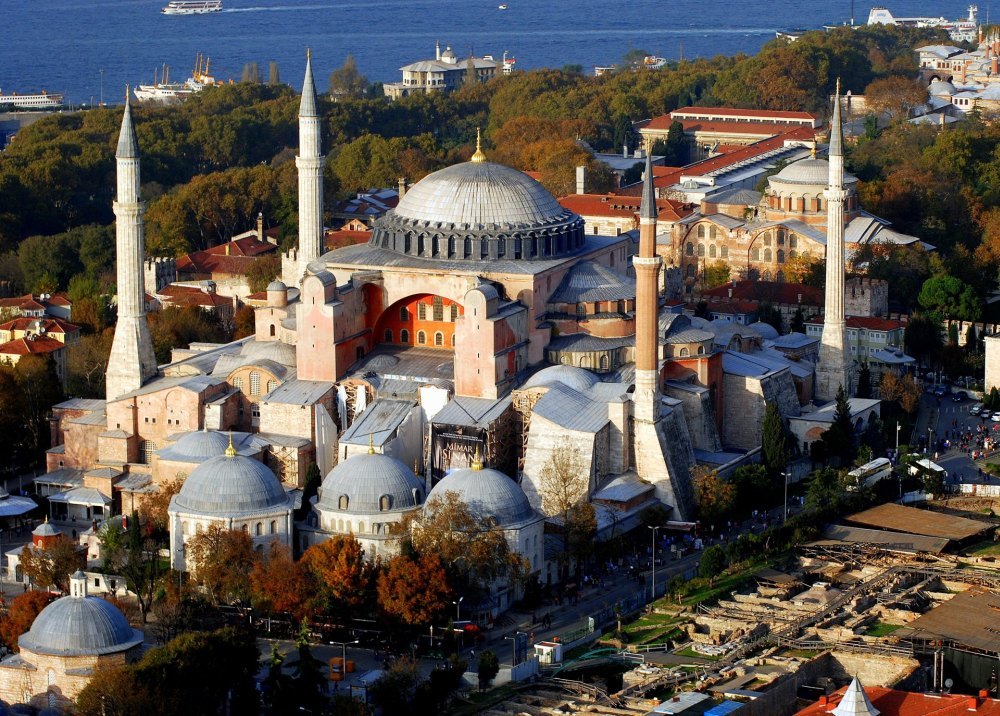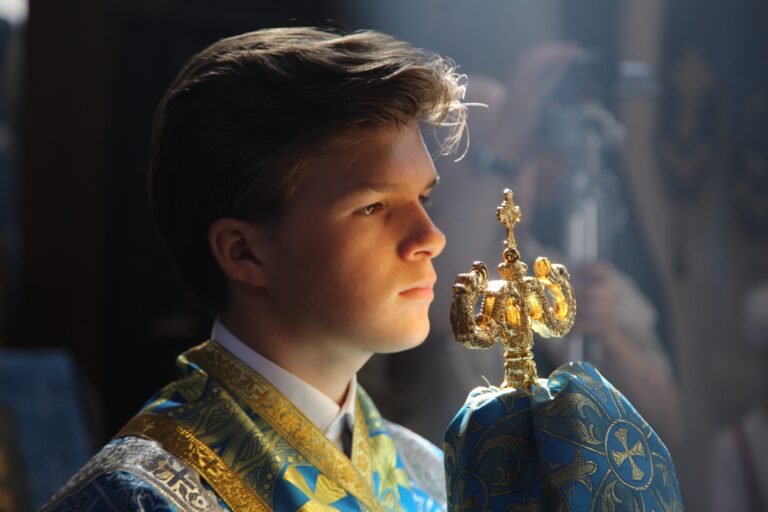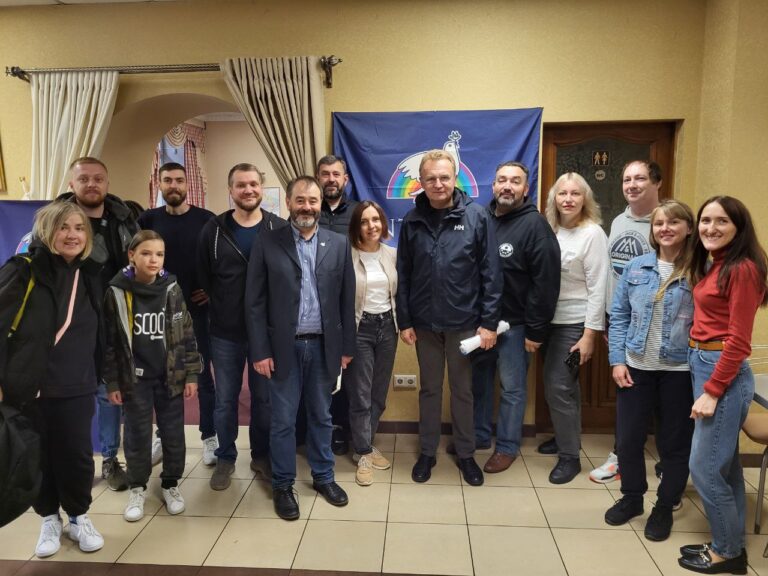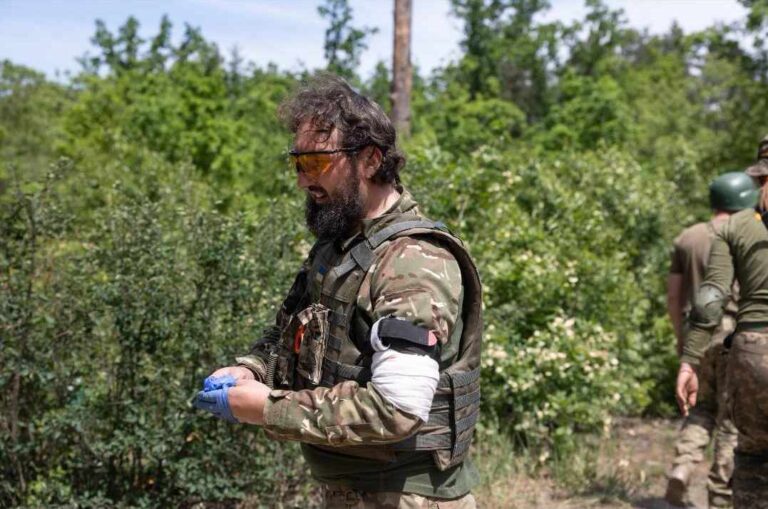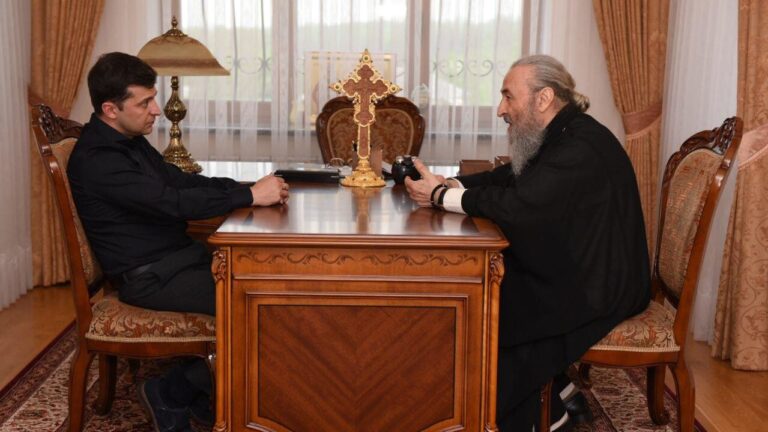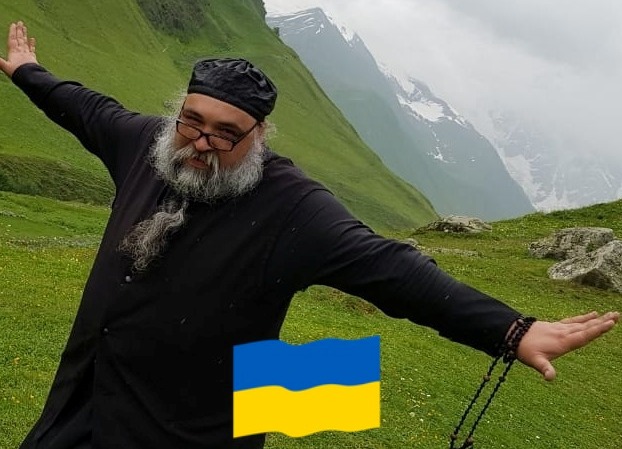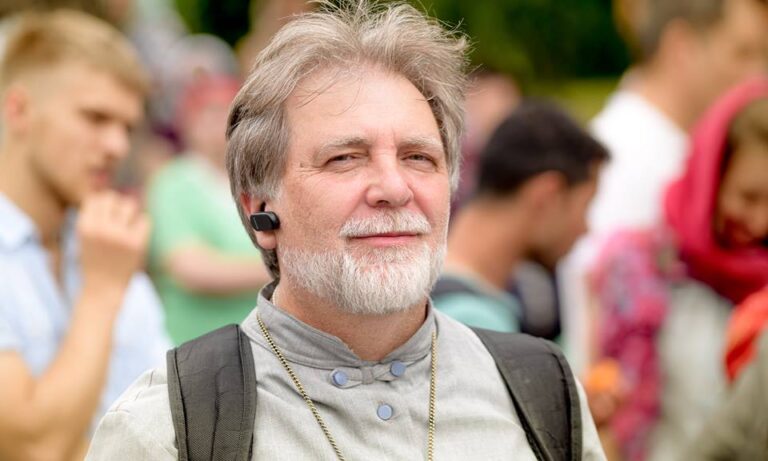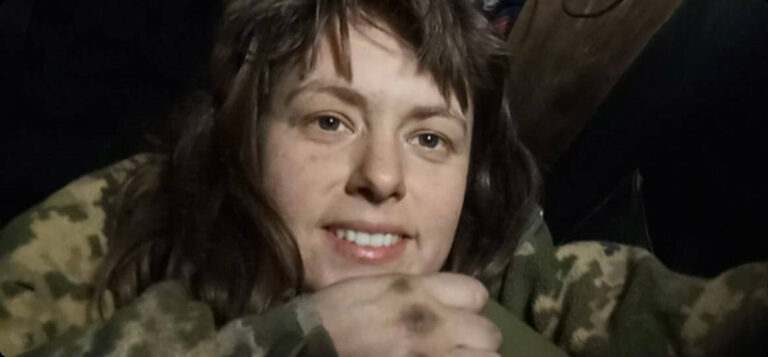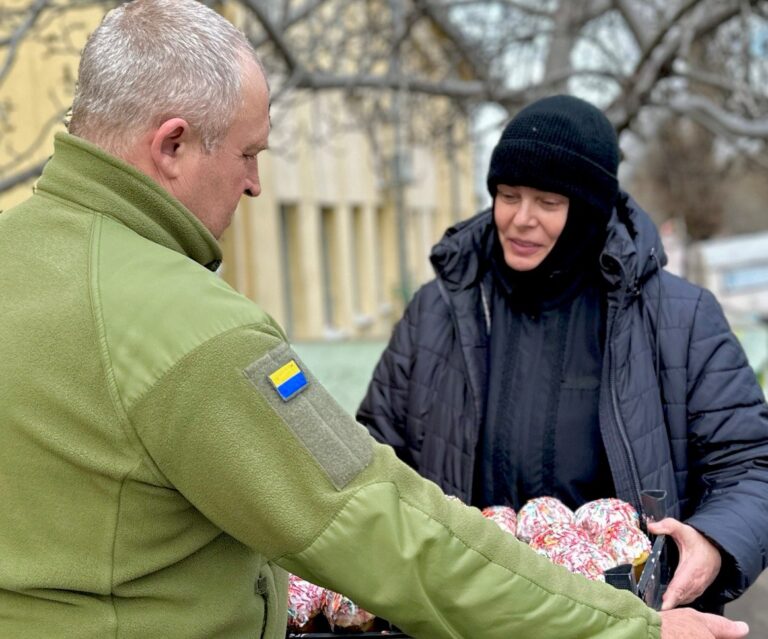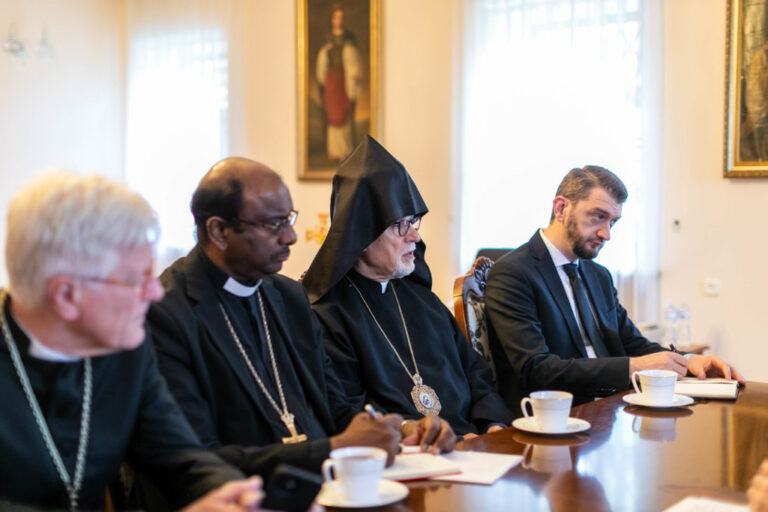We invited some academics from Europe and the USA to assess the legislative initiatives in the religious sphere in Ukraine. We strive to find out what an adequate state policy can be in a country that sees its future in the European Union.
This is the third text in English.
The answers translated into Ukrainian are available here — Експерт: Влада Туреччини оскаржувала право Константинопольського Патріархату називатися Вселенським
Previous articles in the series:
- Expert №1. Don’t handle a mistaken idea of “unity” / Не піддавайтеся спокусі хибної «єдності»
- Expert №2: Russian documents should not determine the fate or name of the UOC, as well as any organization in Ukraine / Документи росії не повинні визначати долю чи назву УПЦ, як і будь-якої організації в Україні
- Expert №4: The actions against the UOC have done much more damage to Ukraine than help / Дії проти УПЦ завдали Україні набагато більше шкоди, ніж користі
(It was our conscious decision not to open now the names of the experts. According to our agreement with them, all comments will remain confidential for at least three weeks from the beginning of the publication. After that, each expert is free to decide whether he/she is ready to open his/her name. Why did we do that? Read more here:
Seven questions to international experts about religious freedom in Ukraine)
***
Question no. 1. On the requirement to rename the UOC
We are believers of the UOC, and as citizens of Ukraine, we feel in a certain impasse.
https://dialogtut.online/dont-handle-a-mistaken-idea-of-unity/embed/#?secret=Jvq2hTup43#?secret=R3kXAMSwTL On the one hand, the so-called “law on renaming” no. 2662-VIII, adopted on December 12, 2018, came into force. According to the decision of the Constitutional Court of Ukraine on December 27, 2022, it was recognized as not being contrary to the Constitution of Ukraine.
In 2019, the religious expertise of the Ministry of Culture was published, as well as in 2023 the conclusion of the religious expertise of the SEFC (DESS) – both of them represent the UOC as a component of the Russian Orthodox Church. Both documents are disputed by the UOC in the courts.
From this perspective, we, the faithful of the UOC, are reproached: “Your Church is not renamed in accordance with the current law. Why does the UOC not comply with the law? If you are for the rule of law, follow the law!”
On the other hand, we as members of this religious organization perceive the state’s attempts to indicate to a religious organization what it must be called and what data must be mentioned in its title, as discrimination on the basis of religion and unacceptable humiliation. Because we, as citizens of Ukraine, are legally forced to play by the rules of the aggressor state. It is also obvious that the Russian Orthodox Church will not remove the UOC from its statutory documents, therefore, we will be in one or another way subject to the law on renaming.
What does this situation look like in terms of international standards of religious freedom and human rights? Are there precedents in other democratic states with the rule of law where authorities “bring order” in the religious sphere, setting strict restrictions on the titles of religious organizations?
***
ANSWER.
There have been precedents in the practice of democratic states, members of the Council of Europe, where applicants have been denied the right to the name of the organization they wish to choose when registering.
Thus, in Asen Genov versus Bulgaria (see Genov v. Bulgaria, no. 40524/08, § 43, 23 March 2017), the Court held that the prohibition on the choice of a particular name was valid because the name proposed by Genov for the Community of the International Society for Krishna Consciousness was fully consistent with the name of a religious association already registered earlier in the same city. Therefore, the restriction on the choice of name was recognized to be reasonable.
There were also two other cases in Macedonia, one dealing precisely with a dispute between different Orthodox jurisdictions. It concerns an Orthodox Church in Macedonia which was under the jurisdiction of the Serbian Church and which was also prevented from registering under the name it wanted (see Orthodox Archbishopric of Ohrid (Greek Orthodox Archbishopric of Ohrid of the Pec Patriarchate) v. the Former Yugoslav Republic of Macedonia, no. 3532/07, § 111, 16 November 2017). The court then took into account that the first option of the name “Orthodox Archbishopric of Ohrid” does not differ significantly from the name of the already registered association “Macedonian Orthodox Church”, but the second name “Greek Orthodox Archbishopric of Ohrid of the Pec Patriarchate” is specific enough to distinguish it from the already registered organization.
In this regard, the Court relies on the fact that “the very fact that the State requires a religious organization seeking registration to take a name which cannot mislead believers and the general public and which enables it to be distinguished from existing organizations may in principle be regarded as a justifiable restriction on its right to freely choose its name”.
The same logic was applied in the case of Ilyin and others against Ukraine, the final decision on it was made on April 3, 2023
(https://hudoc.echr.coe.int/fre#%7B%22tabview%22:[%22notice%22],%22itemid%22:[%22001-220890%22]%7D). A solution regarding the restriction of certain names has indeed been found, but it does not concern the UOC and can hardly be applied to the UOC.
The short story of the case is the following. The Unification Church community (The Holy Spirit Association for the Unification of World Christianity – Unification Church) has tried to register in Ukraine since 2001. First under the name of “The Holy Spirit Association for the Unification of World Christianity”, then “Unification Church”.
In the first case, they were refused because the name “could be interpreted as one which describes a Christian interfaith organization.” Ukrainian legislation does not allow interfaith organizations to be registered as religious communities (§72), but allows registration in another form – as a public association or Non-profit Organisation (§73).
However, the mentioned organization was still going to act as a religious community, and its second name – the Unification Church – indicated both its confessional affiliation and religious character (§74). Nevertheless, the Ukrainian courts referred to the fact that the original name indicated that the organization was a “Christian ecumenical association” and not a religious community (§75). Later, when the religious community decided to accept the name “Unification Church,” they were stopped denying on the basis indicated – the registration authorities no longer had any questions about the name. (§76).
However, the community still filed a complaint with the European Court of Human Rights regarding the refusal to register the Church due to a name that could mislead believers and the public.
The court came to the following conclusion: “In such circumstances, the Court is not convinced that the concerns expressed by the authorities about the original name of the community violated the requirements of the Convention.” (§78). It turns out that the Court, taking into account that there are different forms of legal entities for different types of activities, is not sure that the Ukrainian authorities’ questions regarding the first name, which could indicate the interfaith nature of the organization, were completely unfair.
Considering also that the questions regarding the name were later removed when the religious community took a name corresponding to its confessional affiliation, the Court concluded that there was “no violation of Article 9 in the light of Article 11 of the Convention” in this case.
Thus, there may be restrictions on names – registering religious associations should not choose names for themselves that do not correspond to their confessional affiliation or legal form, or copy the names of already existing associations, as this may create confusion.
If the Ukrainian Orthodox Church appealed to the European Court of Human Rights and it decided that the renaming law violated the rights to freedom of religion and freedom of association, Ukraine would be forced to repeal the law and pay compensation.
The law of democratic states also accepts the principle of the priority of international norms over national law; if it concerns human rights, then such norms must prevail. Laws may be discriminatory and conflict with generally accepted norms, especially since Ukraine, which has ratified the European Convention for the Protection of Human Rights and Fundamental Freedoms, is subject to the jurisdiction of the European Court of Human Rights
Actually, concerning the names of churches. The Turkish authorities disputed the right of the Patriarchate of Constantinople to use the concept “Ecumenical” for its self-name and considered the Patriarch only as the leader of the Greek Orthodox Church in Turkey. The Turkish authorities referred to different documents for this purpose – even the Lausanne Peace Treaty of 1923.
In this regard, the Parliamentary Assembly of the Council of Europe appealed to the Venice Commission, which prepared a draft Opinion in 2009-2010 “On the legal status of non-Muslim religious communities in Turkey and the right of the Orthodox Patriarchate of Istanbul to use the adjective “Ecumenical”.
First of all, the Venice Commission noted that it is not at all its competency to determine whether the Patriarchate is “Ecumenical,” since “this must be determined by the Patriarchate itself and the Orthodox Church” (§83). It should be noted that in 2009-2010 there was no such crisis within Orthodoxy as the one that occurred in 2018, therefore there was a consensus within the Orthodox Church regarding the status of the Patriarchate of Constantinople as Ecumenical.
Secondly, the Venice Commission noted that “this is the internal ecclesiastical name of the Patriarchate, no matter how any government or judicial commissions treat it” (§83).
The commission considered that the authorities’ refusal to allow the Ecumenical Patriarchate to call itself such is “interference in the autonomy of the religious freedom of the Orthodox community” (§85). It referred to the fact that “Freedom of religion includes a certain autonomy on the part of a religious community to make decisions on matters of its organizational structure, such as its internal structure, the appointment of religious leaders, the election and formation of clergy, and not least, the official name of the religious community” (§85). When the state interferes in these aspects, it violates the right to freedom of religion provided for in Article 9 of the European Convention on Human Rights (§87).
Question no. 2. On international mechanisms for challenging the renaming requirement
According to the “law on renaming”, our Church must necessarily indicate in its statutory title the full title of the foreign religious organization of which it is a part, or “mark its place in the structure of a foreign religious organization”.
https://dialogtut.online/open-letter-to-the-leaders-of-international-organizations-and-g7-countries-regarding-the-religious-situation-in-ukraine/embed/#?secret=uQvxQouSiS#?secret=beCiopbUfB In the Statute of the Russian Orthodox Church, our Church is called “Ukrainian Orthodox Church”. Therefore, as far as we understand the logic of the current law, the title “Ukrainian Orthodox Church within the Russian Orthodox Church” would correspond to the law.
However, the 2015 ODIHR/OSCE recommendations (“Guidelines on the Legal Personality of Religious or Belief Communities” the OSCE Office for Democratic Institutions and Human Rights) indicate: “In the regime that governs access to legal personality, states should observe their obligations by ensuring that national law leaves it to the religious or belief community itself to decide on its leadership, its internal rules, the substantive content of its beliefs, the structure of the community and methods of appointment of the clergy and its name and other symbols. In particular, the state should refrain from a substantive as opposed to a formal review of the statute and character of a religious organization”.
What legal opportunities do we have as citizens of Ukraine to challenge the law on renaming at the international level, if all possibilities at the level of state legislation are exhausted? Is there none?
***
ANSWER.
The Charter of the Russian Orthodox Church is the document on the basis of which the Russian Orthodox Church operates and is registered in the Russian Federation. The charter regulating the activities of the religious association of the Ukrainian Orthodox Church is its Charter. In the latter, there is no indication that the UOC is part of the Russian Orthodox Church, and the UOC does not identify itself in this way.
This is a bit like the absentee baptism of the deceased that is performed by the Church of Jesus Christ of Latter-day Saints (Mormons) – where the baptism for the deceased person is performed by an intermediary, and the person is simply considered as a baptized member.
If we develop this logic, then the Charter of the Russian Orthodox Church, among other things, states that “The jurisdiction of the Russian Orthodox Church extends to persons of the Orthodox confession living in the canonical territory of the Russian Orthodox Church: in Russia, Ukraine, Belarus, Moldova, Azerbaijan, Kazakhstan, Kyrgyzstan, Latvia, Lithuania, Tajikistan, Turkmenistan, Uzbekistan, Estonia, as well as voluntarily participating Orthodox Christians living in other countries.” (clause 3 section 1). Then it turns out that if the Ukrainian state seriously follows the statements of the Charter of the Russian Orthodox Church in the part related to the UOC, then why not follow the said statement of the Charter?
As for the mechanisms – 1) there is the Venice Commission, which could adopt its resolution on whether the said law complies with international human rights standards; but state bodies must submit an application there, this is the goodwill of the states, 2) there is a UN Human Rights Committee and 3) The European Court of Human Rights – the most effective mechanism. However to contact these authorities all internal mechanisms have to be exhausted. It is also possible to contact the UN Special Rapporteur on Freedom of Religion or Belief, currently held by Nazila Ghanea.
Question no. 3. About Religious Expertise of the State
The website of the human rights organization “Forum-18” states that “the concept of a religious ‘expert examination’ is vague and legally questionable”. There is also a warning that across the post-Soviet region, including in Belarus, occupied Crimea, and Central Asian states “expert analyses” are often used to restrict freedom of religion or belief and other violations of human rights, including a reason for imprisonment.
In your opinion, in what cases and contexts are state religious expertises relevant? Is the expertise of the SEFC/DESS and its Conclusion on the Statute on Management of the UOC an instrument for restricting the religious freedom of the UOC faithful?
***
ANSWER.
In general, religious expertise makes sense – the Ukrainian Orthodox Church could also order independent religious expertise from respected specialists and refer to such expertise.
As for the specific expertise on whether the UOC is part of the Moscow Patriarchate and continues to be administratively subordinate to it, firstly, the religious expertise was of a commissioned nature and the commission that conducted the expertise consisted of people who belong to the rival Orthodox jurisdiction of the OCU and have a public status there, which casts doubt on its impartiality.
Secondly, in this way, it turns out that another religious community – the OCU – indirectly influences the decision to register the charter, which is unacceptable) (see paragraph 30 “Recommendations on the legal personality of religious communities and communities that are subject to religious reconciliation” by the Bureau OSCE for Democratic Institutions and Human Rights).
Question no. 4. On changing the subordination of religious communities
Along with the constant destruction of hundreds of church buildings of the UOC as a result of the invasion of the Russian Federation into Ukraine, we experience many sad and even tragic situations around the church buildings in the context of the so-called “changes of belonging from the UOC to the OCU”.
https://dialogtut.online/seven-questions-to-international-experts-about-religious-freedom-in-ukraine/embed/#?secret=dBh9CD3HNZ#?secret=evIXOAisAS On the basis of the “law on changes of belonging” no. 2673-VIII of January 17, 2019, many UOC parishes lost access to their church buildings. In part of such church buildings, the OCU has now its worships, some are closed, and meanwhile the parishes of the UOC that had worships in those churches buildings before, have to gather for worships somewhere, including various non-adapted premises or even in the forest.
That means that the state intervened in the procedure for determining the belonging of religious communities and this had serious consequences for many UOC believers.
Repeatedly I heard: “There are no violations of the rights of the UOC believers, there are no problems with changes of belonging”. However, many of us, believers of the UOC, are acutely aware of the reality of these problems, we try to document and challenge them in a legitimate way.
Can we consider that the law no. 2673-VIII on the change of subordination/belonging meets international standards of human rights and religious freedom? Or on the contrary, this is the level of state intervention in the functioning of religious organizations that is inappropriate in a democratic state with the rule of law?
***
ANSWER.
It is obvious that the law “about transitions” is not good enough in protecting the rights of all communities and all believers.
Firstly, it does not regulate who exactly and how can decide on transition; as a result, what often happens is not a situation of “transition” but a situation of “transfer”; we see how people who do not belong to the community vote for the temple transition but the opinion of the community itself is not asked.
Also, in case of a conflict situation, when part of the parish is in favor of the transition, and the other part is against it, there is no clear mechanism for protecting the rights of the minority, including their property rights. Moreover, the transition procedure is often carried out by illegal methods, not through the courts, police, and bailiffs but through forced capture by civilians, with accompanying beatings, causing harm to the health and safety of people.
In a state governed by the rule of law, this is unacceptable.
Question no. 5. About interaction with the state
The sense of unity that Ukraine lived in the first months of the full-scale invasion of the Russian Federation, for many believers of the UOC gave way to confusion or even despair. After all, we fight the aggression of the Russian Federation together with all others and suffer from it together with all others, but meantime a number of politicians, public servants, media and representatives of the OCU brand us enemies of our own country, try to erase us from its life, up to the prohibition of the activities of UOC organizations.
We strive to protect our rights and truth, but in a way that does not harm our state in conditions of the war.
Meanwhile, reproaches are heard against the UOC faithful: the war is an inappropriate time to appeal against the decisions of state authorities and to protect one’s rights in international institutions.
Where are the reasonable limits for protecting our religious freedom? When should we refuse to argue with our state, so as not to harm it, and when should we defend our rights, because this is important to us, ordinary people? And what would be conditions in a democratic state with rule of law to ban the activities of a religious organization?
***
ANSWER.
The state bears greater responsibility for the well-being of society than any other institutions; it has to ensure (or at least strive for) a regime of life in the country where there is civil harmony, no discrimination against groups of population, solidarity, mutual assistance, trust and natural loyalty to one’s state.
During the war when the Ukrainian people are forced to resist aggression, the internal state of society, and its patriotic spirit are important, but the patriotic spirit shouldn’t be built on opposing one group of the population to another. It must be built precisely on consent, on the mutual desire to act together to protect the country, regardless of gender, ethnic origin, and religious affiliation. Of course, those who assist the interventionists, engage in activities supporting aggression, provide intelligence services with information about the location of military and civilian targets, and commit sabotage must be prosecuted by law, also regardless of gender, ethnic origin, social status, and religious affiliation.
Its rights must be defended in all available ways – through monitoring violations, through appeals to the court and mechanisms for the protection of human rights, Ukraine itself has assumed obligations in this regard, becoming accountable to both its people and the international community, declaring that it defends the values of democracy and rights. After all, protecting human rights only helps the state to be stronger and more stable. Of course, it is unacceptable to use violence to protect oneself, the use of propaganda, hate speech, insults, calls to the international community to stop military and humanitarian assistance to Ukraine.
But at the same time, religious organizations and their representatives should take responsibility for harmony in society, do everything possible on their part to remain within the law and non-violent methods of resistance, not add fuel to the fire of conflict situations, but try to act within the framework of legal mechanisms.
Question no. 6. On trends in the religious life of Ukraine
What dangerous or encouraging trends in the religious life of Ukraine do you see?
***
ANSWER.
The most important negative and dangerous trend is the polarization of society, the growth of inter-religious hostility and strife, especially in inter-Orthodox relations, the inability of the Orthodox hierarchy, both on the part of the UOC and the OCU, to adequately respond to what is happening. On the other hand, it is encouraging that Ukraine still has a strong civil society, and grassroots initiatives that focus on overcoming polarization.
Question no. 7. About expert advice to the Ukrainian authorities
If there would be an opportunity to advise the President, the Parliament, the Government of Ukraine on the ways relating the UOC in compliance with international regulatory standards, what would you advise to do in the sphere of state policy in conditions of the war?
***
ANSWER.
Firstly, it is necessary to motivate the authorities to change their policy in the field of religion, so that they are concerned about the existing problem, recognize it, and recognize the fallacy of the policy.
The President, parliament, and government need to be informed 1) about the patriotic position that the UOC takes in the war, with facts, with heroes, it can gather veterans who belong to the UOC, the wounded, wives and parents of the dead – to testify that the believers of the UOC they volunteer, fight, are captured, die. There was a good project called “Myryany” about the believers of the UOC in the Armed Forces of Ukraine. 2) It is also necessary to inform about international legal standards in the field of freedom of conscience and explain how the current policy towards the UOC negatively affects the image of Ukraine in the world, how the topic is manipulated by the enemies of Ukraine, and how this threatens to reduce assistance – humanitarian and military.
Secondly, we need to propose ways out of the crisis. Unfortunately, at the moment the situation with the UOC has reached such a dead end that it is very difficult to come up with a way out. The authorities are under pressure from the opposition, under pressure from a part of society in which the image of the UOC and its believers has been demonized, and it is quite difficult to simply stop the persecution – it is easy to unwind the spring, but it is difficult to spin it back.
It is necessary to consult with specialists in different fields – human rights activists, conflict experts, political scientists, sociologists, psychologists, and political strategists. It is necessary to gradually work to relieve tension about the UOC. Of course, government representatives should meet with the leaders of the UOC and negotiate to develop a common strategy for overcoming the crisis.



